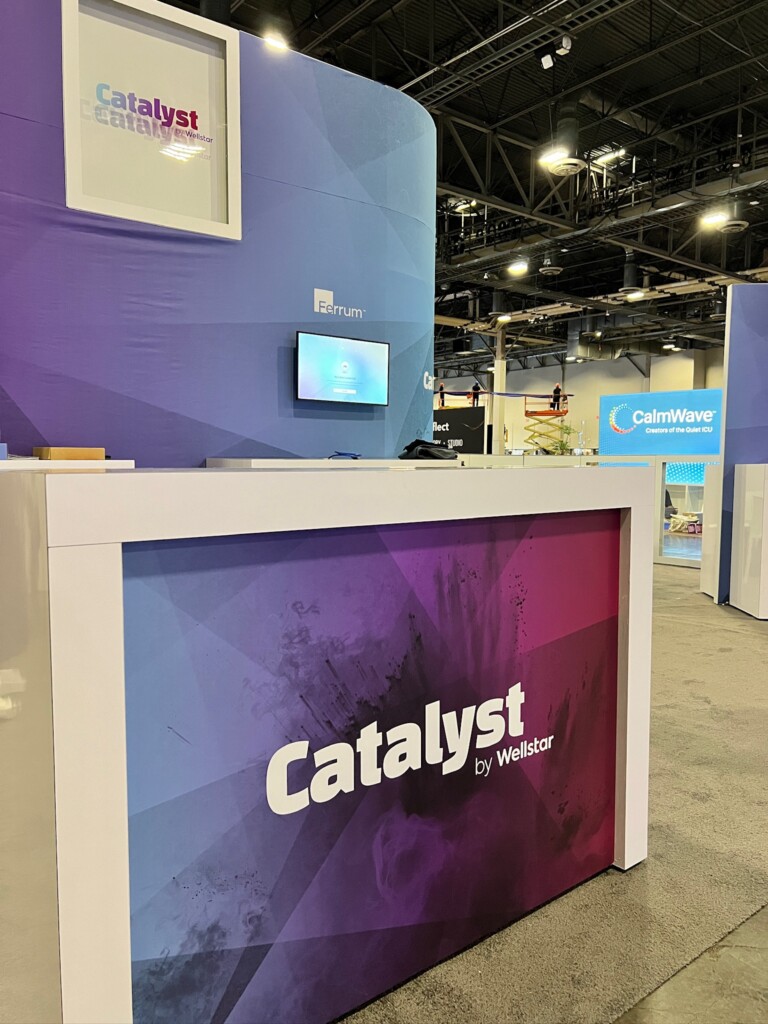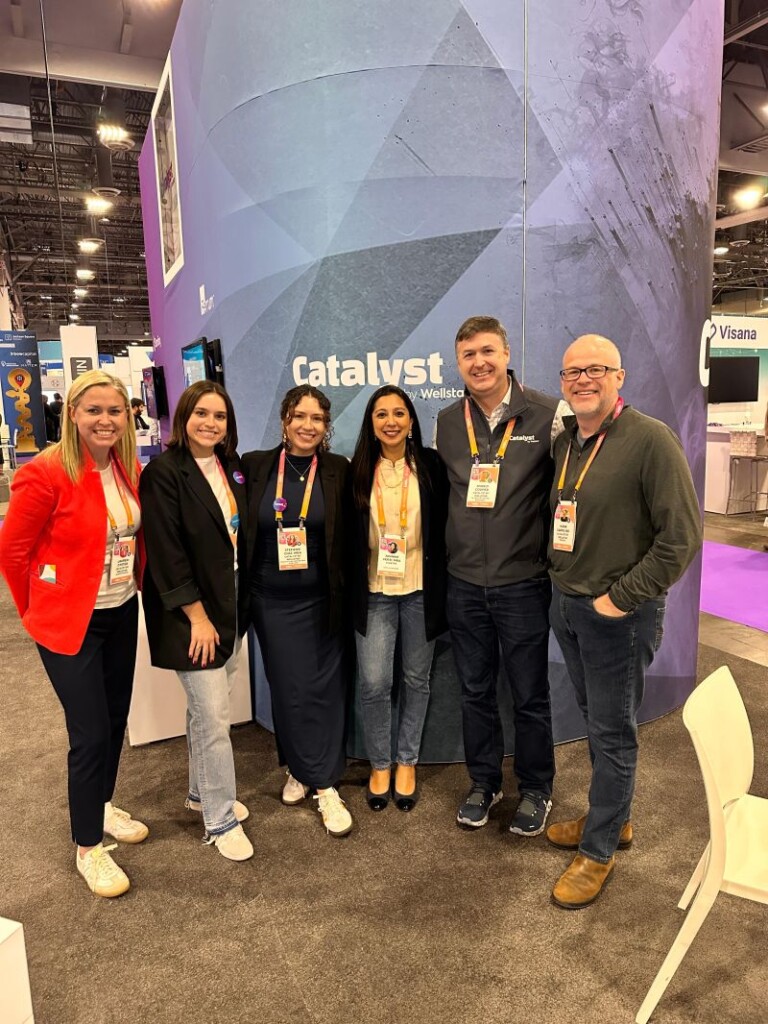
Catalyst by Wellstar recently attended HLTH 2024, where members of our team engaged with industry leaders, startups, and investors to explore pressing issues and advancements shaping the future of healthcare.
Catalyst showcased partnerships with vflok, Ferrum Health, CalmWave and Starling, each addressing key healthcare challenges.
vflok’s AI-driven platform redefines nurse scheduling, creating flexible, community-centered schedules that fit into nurses’ lives, reducing burnout and boosting engagement. Ferrum Health’s AI-powered diagnostic support enhances accuracy in patient care while preserving data privacy, aligning with Catalyst’s mission of elevating clinical outcomes. CalmWave’s solution tackles ICU alarm fatigue by filtering non-actionable alarms, leading to reduced staff burnout and increased patient safety. Starling Medical’s AI-powered urine monitoring technology enables early detection and management of urinary tract infections.
These partnerships reflect Catalyst’s commitment to innovation that improves healthcare experiences for both providers and patients. To read in-depth content of each of these partnerships, visit our HLTH 2024 hub.

1. The Longevity Debate and Shift Towards Preventative Care
“The Longevity Debate” explored the growing interest in proactive healthcare over traditional “sick care.” Discussions emphasized the importance of understanding genetic risk factors, improving metabolic health, and reducing environmental toxin exposure.
According to Dr. Casey Means, lifestyle changes, rather than pills or surgeries, are essential for true longevity. Dr. Means is the co-founder of Levels, which seeks to make users experts in their own health through food logging, habit tracking and blood sugar monitoring.
In discussions on aging, these new approaches to metabolic monitoring and early intervention highlighted gaps in the healthcare system. For instance, a significant number of individuals with heart disease experience their first heart attack without prior warning, emphasizing the need for preventive care that addresses underlying health risks.
Projections indicate that consumers will spend over $50 billion annually on preventative health by 2026. On average, households now allocate nearly $1,200 per year for out-of-pocket wellness and prevention services. With digital health solutions on the rise—particularly in chronic and mental health management—startups are finding substantial opportunities to meet this growing demand.
2. Caregiving as a Workplace Priority
Another enlightening session, “Employers’ Caregiving Era,” underscored the impact caregiving has on workforce retention. With caregiving responsibilities as the second leading reason employees leave their jobs (after retirement), organizations are increasingly recognizing the need for meaningful caregiving support.
For medical professionals, this caregiving outside a clinical setting includes childcare, elder care, pet care, and even caring for friends and neighbors. Though caregiving does disproportionately impact women, people of color and those on the lower end of the socioeconomic spectrum, panelists noted that this is not just a women’s health issue, but a societal issue.
3. Addressing the Youth Mental Health Crisis
A recurring theme of the conference was the urgent state of youth mental health. Key insights included the limited insurance coverage for early treatment of eating disorders and the pandemic’s lasting effect, which has doubled depressive and anxiety symptoms among teens.
Additionally, during the session “The Longevity Obsession,” one of the speakers shared that over 60% of parents struggle to identify early signs of emotional issues in their children, and 70% of teens report feeling lonely despite being surrounded by family and friends. This emphasizes a critical need for youth-focused mental health startups like Enrichly, which are already part of Catalyst’s portfolio.
4. AI’s Impact on Preventative and Personalized Care
At HLTH 2024, AI emerged as a transformative force in healthcare, particularly in preventive care and personalized treatment. Predictive analytics and real-time diagnostics were showcased as powerful tools to identify chronic conditions early, offering healthcare providers data-driven insights for timely intervention and prompting lifestyle adjustments.
Ferrum Health, for instance, showcased its AI-powered diagnostic platform designed to enhance patient care by providing clinicians with advanced decision-support tools. Additionally, Google presented its latest AI initiatives aimed at improving healthcare delivery, emphasizing the integration of AI into clinical workflows to assist healthcare providers in making more informed decisions.
In mental health, AI applications analyze behavior patterns to provide early interventions, crucial for youth and aging populations. While AI offers vast potential, panelists highlighted the need for ethical standards and regulatory frameworks to ensure patient privacy and data transparency, especially as these tools become more integrated into patient care.

Final Reflections
HLTH 2024 underscored the importance of preventative, proactive healthcare. From youth mental health and caregiver support to aging populations and wellness investments, the conference signaled both the challenges and opportunities ahead. Catalyst by Wellstar remains committed to shaping the future of healthcare by collaborating with startups, fostering connections, and exploring innovative solutions to build healthier communities and empower patients across the care spectrum.


